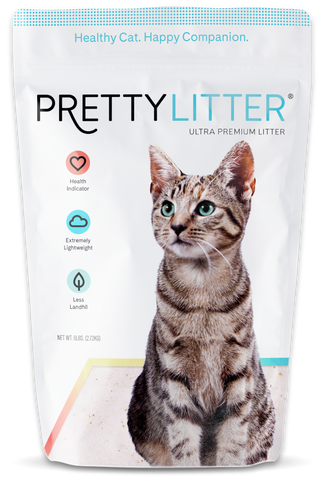Kitty kisses – they come only once in a blue moon and seem to be reserved for fleeting moments when your cat is feeling extraordinarily affectionate. Or when you have some yummy dinner stuck to your face. Either one.
If you've been on the receiving end of the rare but wonderful kitty kiss, you've likely been struck with the peculiar question: why does my cat's tongue feel like sandpaper?
If you've been on the receiving end of the rare but wonderful kitty kiss, you've likely been struck with the peculiar question: why does my cat's tongue feel like sandpaper? If you have noticed that your cat’s tongue feels like sandpaper, you are not alone.
Oddly enough, the texture of your cat's tongue – and any subsequent kisses – is more complex than just a rough grit or unusually stiff taste buds.
In fact, your cat's tongue has a unique anatomy that lends itself to many useful tasks that are important to the health and positive mood of your feline friend.
Kitty Cat Anatomy
Have you ever taken a look at your cat's tongue? The next time you catch your kitty in a big, gaping yawn, take a look in there. You'll notice your cat's tongue is equipped with a few things that are foreign to us humans.
Papillae
The first and most noticeable difference between your cat's tongue and the rest of the animal kingdom are small, hook-like barbs called papillae. When you peek into your cat's mouth, these are the thin, backward-facing structures you see lining the surface of your cat's tongue. These tiny hooks are meant to help rid any loose fur from your cat's coat while they are grooming.
Taste Buds
The papillae are not taste buds; your cat does have tastebuds, but not very many! Cats have far fewer taste buds than humans and they have none that detect for sweet flavors. Oddly enough, if your cat seems to like berries and other sweets, it's probably a learned behavior from being fed human foods.

Super Sensitivity
Despite not having many taste buds, cats' tongues are surprisingly sensitive to texture and size. If your cat is rejecting a new food, it may be because of the shape of the pieces or the sensation they create when they hit her rough tongue. Best to go with a cat food that is cat and cat-parent approved.
Cat Litter That Prioritizes Their
Health & Your Happiness.
Get 20% + a Free Toy
Use Code PRETTYBLOG at Checkout
for 20% Off + a FREE Catnip Toy
Why Does My Cat's Tongue Feel Like Sandpaper?

The answer to the timeless question "why does my cat's tongue feel like sandpaper" is both simple and complex. The simple answer is that your cat's papillae create a grating sensation on the surface of your skin with every lick. These stiff, hook-like structures give your cat's tongue its rough texture.
On a more complex level, many pet parents often wonder why on earth our dear, sweet kitties have such a mean looking mouth. If you've ever taken a look at those sci-fi-worthy papillae, you'll surely notice they are nothing to be trifled with.
However, in your cat's world, grooming is right at the top of the priorities list, second only to napping and eating. The tiny hooks of the papillae help your modern day cat whisk away dirt, loose fur, and knots from her gorgeous pelt.
For your cat's ancestors, big cat cousins, and his brave feral friends outside, the papillae are useful for cleaning meat and fat from the bones of prey. This allows them to be successful predators in the animal kingdom while also helping a domestic cat with grooming.

Tired of your
home smelling like
you have a cat?
20% + A Free Toy
Use code PRETTYBLOG
Parental Warning
Your cat's sandpaper tongue isn't just a weapon she can use in the battle against bad hair days. In fact, the papillae on your cat's tongue can cause serious problems in the wrong circumstances.
For example, many cats love to lick fabric or play with yarn and string. If this sounds like your cat: beware.
The papillae on your cat's tongue can easily get caught on foreign objects, particularly fabrics and fibers. If your cat is unable to spit it out, he may try to chew on it more or even attempt to swallow it, which can cause serious health problems.
The next time a fellow cat lover asks you the age-old question "why does my cat's tongue feel like sandpaper?" you'll be able to answer with a thorough, helpful answer.
Have other questions about your cat's curious anatomy? Let us know in the comments below! And don't forget to follow us on Instagram
@PrettyLitter














